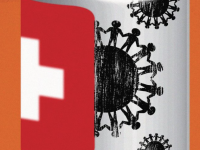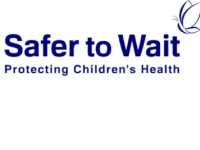By Anthony Furey Publishing date:Nov 03, 2021
"On Tuesday evening, Health Canada posted to Twitter that it would take “months” for them to review Pfizer’s submission concerning vaccines for children, ages five to 11.
This came the same day that the U.S. Centers for Disease Control approved the roll-out for that same vaccine in that same age group. Social media being what it is, some people hit the roof, lashing out at Health Canada for that statement.
They wanted the vaccine approved that very second, not a couple of months down the road.
Health Canada later deleted that post and added a clarification, stating: “That was incorrect. The review will take weeks, not months.”
But those who were upset by the first statement shouldn’t mistake this clarification for an endorsement of the view that all kids need to get the vaccine and need to get it as soon as possible.
That’s not what the experts are saying. It’s not even what Pfizer and the U.S. bodies that approved the vaccine are saying.
It’s a much more nuanced discussion. Yet, these nuances haven’t been filtering down to Canadian parents as much as they should be.
While the FDA advisory committee voted 17-0 (with one abstaining) last week to move ahead with the Pfizer kids’ vaccine, there were caveats. The big one was that the committee asked multiple times about being able to instead vote on initially just approving it for high-risk kids.
But the FDA insisted they vote on approving it for all.
“It just seems to me that in some ways, we’re vaccinating children to protect the adults, and it should be the other way around,” said FDA committee member Dr. James Hildreth. “I do believe that children at highest risk do need to be vaccinated. But vaccinating all of the children … that seems a bit much for me.”
Not even Pfizer seems to be pushing for mass vaccination of all kids in the same way some voices on social media demand. In their briefing document to the FDA, Pfizer says “the benefits of the (kids’) vaccine are highly dependent on the incidence of COVID-19.”
Pfizer lays out one scenario — based on where transmission rates were at for June 2021 — where the vaccine actually creates more hospitalizations in kids due to heart issues than it would prevent hospitalizations due to COVID-19.
The challenge with talking about potential side effects in kids is that the number enrolled in Pfizer’s study is quite small. Only 1,518 kids received the shot (with 750 getting the placebo). And yet, what caused Ontario health officials to recommend against young males receiving Moderna was a 1 in 5,000 incidence rate of myocarditis.
It’s perhaps for these reasons and more that, according to Angus Reid Institute, only about half of Canadian parents are eager to see their little ones vaccinated soon after it becomes available. While Health Canada may not be months away from making a determination, that poll showed many parents plan to wait several months until giving it to their kids.
“We need to temper our enthusiasm until we have safety data from a larger group of children. The Pfizer study looked at just over 1,500 kids with a short follow-up period,” wrote Dr. Martha Fulford, a pediatric infectious diseases physician based out of Hamilton, in an email to the Toronto Sun.
“While it is reasonable to consider vaccinating some children early, such as very high-risk children, we need the safety data and longer-term effectiveness data before any generalized recommendation can be made.”
The issue of vaccinating kids is clearly much more complicated than the adult vaccine roll-out.
Let’s hope this gets the widespread acknowledgment it deserves."





